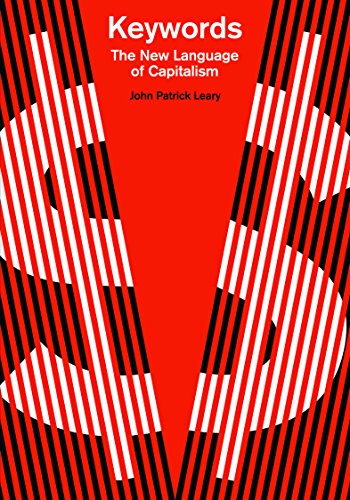About this item
Keywords: The New Language of Capitalism chronicles the rise of a new vocabulary in the twenty-first century. From Silicon Valley to the White House, from kindergarten to college, and from the factory floor to the church pulpit, we are all called to be innovators and entrepreneurs, to be curators of an ever-expanding roster of competencies, and to become resilient and flexible in the face of the insults and injuries we confront at work. In the midst of increasing inequality, these keywords teach us to thrive by applying the lessons of a competitive marketplace to every sphere of life. What's more, by celebrating the values of grit, creativity, and passion at school and at work, they assure us that economic success is nothing less than a moral virtue.
About the Author
John Patrick Leary
I am a scholar of U.S. and Latin American literature and culture from the nineteenth century to the twenty-first. My teaching and research address a common broad question: how are our local and national identities shaped by and through popular economic and political narratives of wealth, progress, and poverty? A Cultural History of Underdevelopment: Latin America in the U.S. Imagination (University of Virginia 2016) explores how Americans have mapped the hemisphere from the mid-19th century to the end of the Cold War in terms of an economic geography in which the United States was a rich nation among poor ones. The most common term for this geography of poverty has been "underdevelopment," a term from the social sciences that, in spite of economists' claims to data-driven empiricism, has always drawn on cultural generalizations about the origins and consequences of poverty. From the Mexican War and Cuban annexation crisis of the 1850s through the back-to-nature romances of Ernest Hemingway, Mary Austin, and Jack Kerouac and up to the recent Cuban detente, the stories Americans tell themselves about Latin America are stories about the cultural origins of wealth and poverty.My next book, Keywords for the Age of Austerity, is due out from Haymarket Books in 2018. It's a lexicon of the contemporary age of inequality, which chronicles the rise of a new vocabulary that has come to shape our professional, intellectual, and even spiritual lives in the twenty-first century. In a series of short essays on the contemporary politics and surprising historical meanings of key terms from mainstream journalism and the corporate world, Keywords for the Age of Austerity is an accessible guide to the ideology of contemporary capitalism. By uncovering the history and common use of popular terms like "accountability," "entrepreneur," and "innovation," the book skewers the conventional wisdom of the country's political and business elite.
Report incorrect product information.


